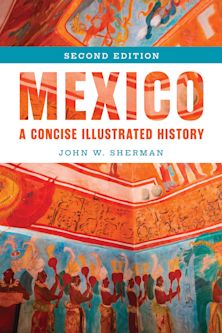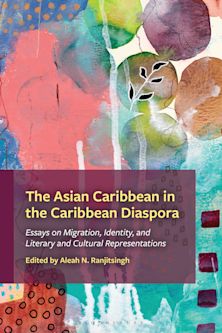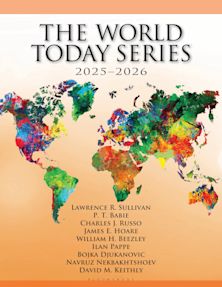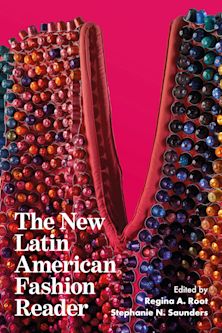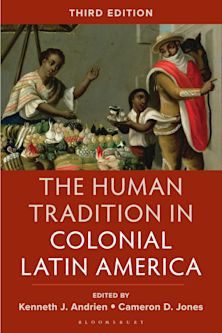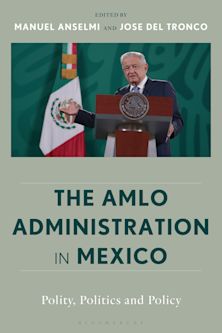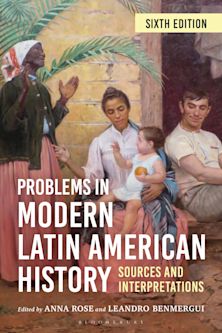- Home
- ACADEMIC
- History
- Latin American History
- Identity and Violence in Early Modern Granada
Identity and Violence in Early Modern Granada
Conversos and Moriscos
Identity and Violence in Early Modern Granada
Conversos and Moriscos
This product is usually dispatched within 1 week
- Delivery and returns info
-
Free US delivery on orders $35 or over
You must sign in to add this item to your wishlist. Please sign in or create an account
Description
In Identity and Violence in Early Modern Granada: Conversos and Moriscos, Tanja Zakrzewski argues that Conversos and Moriscos, despite being distinct sociocultural groups within Spanish society, still employed the same arguments and rhetorical strategies to establish and defend their place within society. Both Conversos and Moriscos relied on contemporary notions of honour, authority, and loyalty to emphasize that they are true Spaniards - not despite their New Christian heritage but because of it. This book offers an entangled narrative of their history and examines how their notions of honour and hispanidad shaped their socio-cultural identities during the time of the socio-cultural identities during the time of the Alpujarras Rebellion.
Table of Contents
Chapter 2. New-Christian Perspectives: History, Culture, and Spanish Society
Chapter 3. Not Religion but Regional Culture
Chapter 4. Honour and Loyalty
Chapter 5. Authority
Product details
| Published | Apr 15 2023 |
|---|---|
| Format | Hardback |
| Edition | 1st |
| Extent | 254 |
| ISBN | 9781666915341 |
| Imprint | Lexington Books |
| Dimensions | 9 x 6 inches |
| Series | Bloomsbury Studies in Modern Jewish History, Historiography, and Memory |
| Publisher | Bloomsbury Publishing |
About the contributors
Reviews
-
In this lucid, methodologically sensible, and well-written work, Tanja Zakrzewski does something that has hitherto been rare: She attempts to deliver an 'entangled history' of early modern New Christians (judeoconversos) and Moriscos. Instead of treating conflicts involving these ethnic populations merely as matters of distinct “religions,” she concentrates on the formative influence that intercommunal conflict exerted upon both disadvantaged groups more or less simultaneously and with broadly similar effects. Specifically, Zakrzewski demonstrates how, in grappling with Christian hostility and persecution against Moriscos, one judeoconverso and two Morisco authors (re)formulated the identities of Granada's ethnoreligious and political communities by contesting yet also engaging dominant Christian definitions of culture.
As a work of philology and an exercise in the historical contextualization of texts, Identity and Violence in Early Modern Granada summons new possibilities in the study of relations between the ethnoreligious groups that comprised Granada's cultural tapestry in the sixteenth and seventeenth centuries; of rhetoric as a shared tool of identity formation; and of the creative search for dignity and social belonging under conditions of duress. Social scientists and humanists alike will benefit from the work's clear and sophisticated approach to phenomena of self-definition and boundary-setting.David L. Graizbord, The University of Arizona

ONLINE RESOURCES
Bloomsbury Collections
This book is available on Bloomsbury Collections where your library has access.













